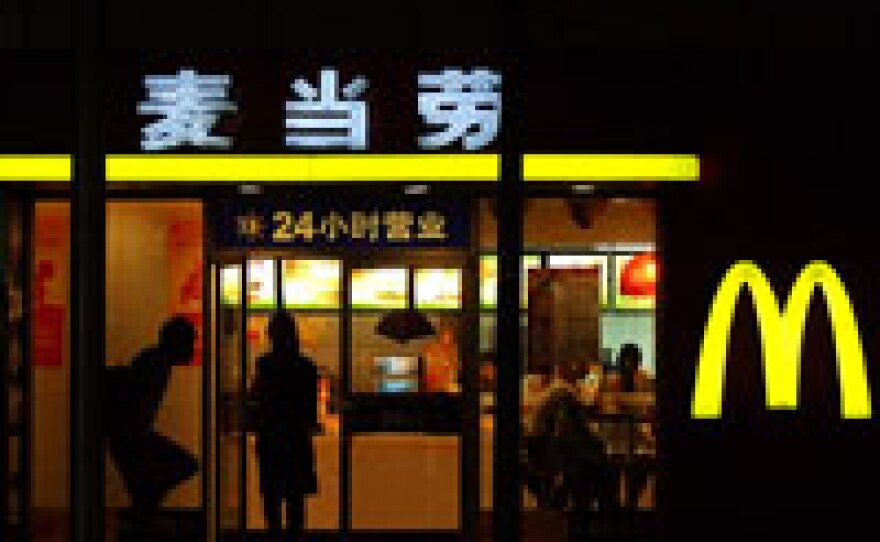Want to try to understand the complicated world of exchange rates? Look no further than burger prices.
In Malaysia, for instance, a McDonald's Big Mac, which goes for $3.57 in the States, costs $1.70. In Norway, it costs $7.88.
"What we try to do is compare burger prices across the world and then using those prices, calculate what exchange rates ought to be," says John O'Sullivan, economic correspondent for The Economist magazine, which published its unofficial "Big Mac Index" to world currencies last week.
The annual index is based on the theory of purchasing-power parity, which holds that exchange rates should move to make the price of a product the same in each country. This year's index found that most major currencies are overvalued against the dollar.
O'Sullivan tells Morning Edition guest host Deborah Amos that right now, in terms of a Big Mac, a dollar goes much further in Asia than it does in Europe.
"American visitors to Europe will find their wallets thinning out pretty quickly once they step off the plane," he says.
Wages and rents are an important part of the cost of a Big Mac, he says. "So it's not surprising that an American visitor to a developing Asian economy will find that a Big Mac actually looks like good value for his buck."
O'Sullivan points to two factors that contribute to the weak dollar: the economy and oil prices.
"When the economy looks like it's going to do badly, investors tend to sell that currency against other currencies, and that drives its exchange rate down," he says.
On top of that, America is far more dependent on oil imports than are European countries, he says. "So America has to generate far more export earnings; it has to sell more stuff abroad to pay for its oil than other European economies, and that has a downward influence on its exchange rate, too."
The Big Mac Index was started in 1986 and is published annually. O'Sullivan says The Economist chose the Big Mac as a measure gauge for exchange rates because it's available in 120 countries, and it's available in pretty much the same way: "A Big Mac in America is the pretty much the same as a Big Mac everywhere else."
"A Big Mac is something that's a part of everyone's imagination," he says. "It gives you some indication about what other types of business services will cost as well."
Copyright 2022 NPR. To see more, visit https://www.npr.org. 9(MDAzMjM2NDYzMDEyMzc1Njk5NjAxNzY3OQ001))






